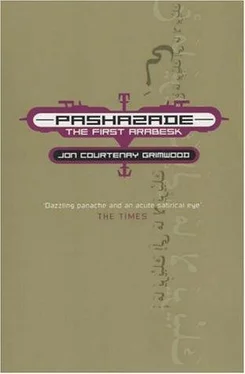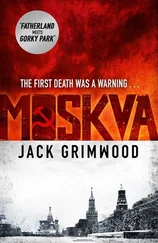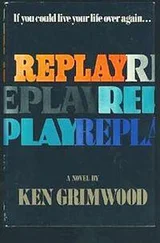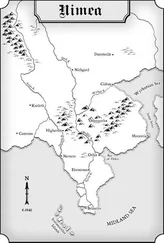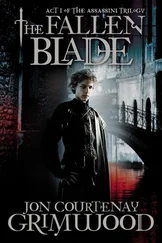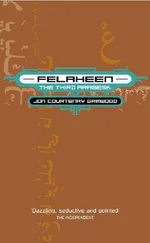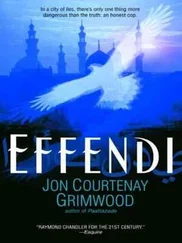'It's okay, honey. You're allowed to tell me.'
Hani didn't answer. Partly because she'd never really seen another person naked and she was looking at Zara with the disturbed fascination of someone who knew that, one day, strange things would happen to her body too. And partly it was because Hani didn't know the right answer.
Hani tried very hard to give only right answers, even if other people thought that wasn't true. Other people had always been Aunt Nafisa and Donna, but now her aunt was dead and Donna was still at the madersa and other people were Ashraf and the woman standing in front of her, struggling to get into her filthy shirt without letting the cloth scrape her back.
'Do you want me to do that?' Hani asked.
Zara nodded, and sat back on the edge of the camp bed.
'This arm first,' Hani said.
Obediently Zara threaded one arm through the offered sleeve.
'Now this one ..."
'Did she?' Zara asked, gently moving Hani round so the child stood facing her. The child blushed, though at what Zara wasn't certain.
'She did, didn't she?'
Very slowly Hani nodded.
'Often?'
'Sometimes.' By now the child was gazing anywhere but at the young woman in front of her.
Zara didn't need to ask if the blows were hard. She'd faced that question for herself and could answer as a child. All blows were hard when it was someone who was meant to love you and someone you were meant to love — did love — until you finally taught yourself not to ...
'Something happened, didn't it?' Zara said gently.
Hani shook her head.
'Yes,' said Zara. 'When Lady Nafisa came home ... You saw her come in and something happened. Was she angry?'
'No,'Hani said, nodding. The answer was there on her tongue but her mouth was closed into a bitter, troubled trap, holding in secrets too heavy to speak.
Tell me,' Zara said. 'She came home and you were where ... ?'
'In her study,' Hani's voice was a whisper. 'She'd taken Alì-Din.' Hani clutched the rag dog tight, as if someone might be about to confiscate the toy again.
'So she hit you ...' Zara could understand the child's hurt. She'd inhabited that world until first thing this morning. Now her world would be different.
'No,' said Hani. 'She missed. So I ran away.'
'She missed?'
Hani nodded. She was thinking. Remembering, but not quite understanding. 'Aunt Nafisa was falling over. She shouted at me because her head hurt.'
'What?' Zara asked quickly. 'What did she shout?'
'To get a doctor — and to leave her alone.'
'So what did you do?'
Wide eyes regarded Zara. 'I shut the door and locked it ... She was drunk. It's wrong to be drunk.' Hani nodded intently, reassuring herself. 'When Donna got drunk Aunt Nafìsa slapped her and said next time she'd call the police ...'
So you didn't call a doctor, thought Zara, because you didn't want the police to come. And then your aunt was killed and the police came anyway. No wonder you're traumatised.
'Honey,' said Zara as she stroked Hani's cheek, 'it's okay. You did right. And I promise we won't let anyone know she'd been drinking.'
The anger coming down the line was almost palpable. Hamzah's fear finally finding a target it could hate. 'I will kill you if you've hurt her ... Do you understand?'
'Me, hurt Zara? I thought that was your wife's job.'
That earned Raf stunned silence. Raf could do misdirected hatred too, better than most. Raf and Hamzah were two minutes into what passed for a conversation and were already headed for a brick wall.
'You shot Felix Bey,' Hamzah said finally. As if that was proof Raf intended to slaughter his daughter as well.
'News travels ...' So did a memory, sliding out of the past. Felix discussing the General. Felix bad-mouthing the Minister. Felix talking about skimming his percentage off men like Hamzah, but still not looking the other way. In a city like Iskandryia anyone could have sent that bomb.
Raf ran tired fingers across his scalp, feeling stubble. It needed washing along with the rest of him. He felt old and tired, centuries older than when he had first arrived in the city. His face was narrower, his dark blond beard made his lips look thinner and chin more pointed. There was a vulpine cruelty to his own face that Raf didn't recognize.
The prince must make himself feared in such a way that, if he not be loved, at least he escapes being hated.
An old memory.
Well, okay, if the fox said so.
'Let me tell you about Felix,' said Raf angrily. 'He had cancer of both lungs and a liver with more holes than a sponge. He drank a bottle of whisky a day and had a daughter he hadn't seen in years. What he didn't have, when I last saw him, was medical insurance covering lifestyle choices or losing half his head ...'
The words were ice-cold, burning with blue fire. Raf didn't really know the person who spoke them or recognize the anger that shot them out of his mouth and down the line to the suddenly silent industrialist. He only knew that, this time, that person was him.
'He told me he was the only really honest cop in that place and I believed him. And, yes, I shot him,' said Raf. 'I put a gun to what was left of his head and pulled the trigger. And I'd do it again. Right now, tomorrow, next year, whenever ... He was the closest thing I'd found to a partner in this stinking sewer of a city and I owed him. What part of all this don't you understand?'
The man on the other end broke the connection quietly. Seconds later the windows darkened to an impenetrable black, the interior of the boat brightened as bulkhead lights came on and the dashboard lit with a dozen different read-outs. Over on one wall a window came to life, revealing a rolling news programme. Ashraf Bey trapped. Below it, a wall-mounted keyboard beeped once to show it was live.
A tiny voice from the VSV 's console announced the craft was shielded, operating fooler loops and running overlapping stealth routines. It also told Raf that he had visitors.
'Well, now,' Zara said, as he opened the door to her and she saw the live array of the console beyond. 'You want to tell me exactly how you managed that?'
Chapter Thirty-nine
30th July
The aged felah behind the make-shift counter looked as old as a twisted olive tree until one noticed his eyes. Then it became obvious that although hot summers and wild winter storms had beaten his face to the colour and consistency of cheap leather, the man's eyes revealed his true age: which was still old enough to have seen almost everything the city could offer, except the sight of police openly surrounding the madersa of a bey.
And he knew it was Friday afternoon and his street licence banned working but the crowds were out — and when the crowds were out they needed feeding.
'Taamiya ...' Falafel. On the cart in front of him was a stack of aluminium bowls, three wine bottles now filled with some kind of sauce and a ladle. The wide neck of a metal jar stuck through the flat top of his cart. Inside the jar, already-cooked falafel were slowly cooling.
On a separate cart, in a huge metal container of bubbling oil, bobbed more taamiya ready to be scooped out and transferred to the main cart. Next to the bobbing taamiya was a smaller bowl of beaten egg into which they'd been dipped, before being rolled in bread crumbs ready to fry. Here too were kept piles of pitta, which a slash of the knife converted from simple flat bread into a pocket waiting to be filled with taamiya, chopped salad and sauce.
The younger man took the food he'd asked for and gave the cart owner a handful of change, half of it adorned with the profile of the Khedive, the rest featuring His Imperial Majesty. Only the poor still used small change and it didn't matter to them whose head was on the coins, so long as agreement existed how much each little circle of metal was actually worth.
Читать дальше
